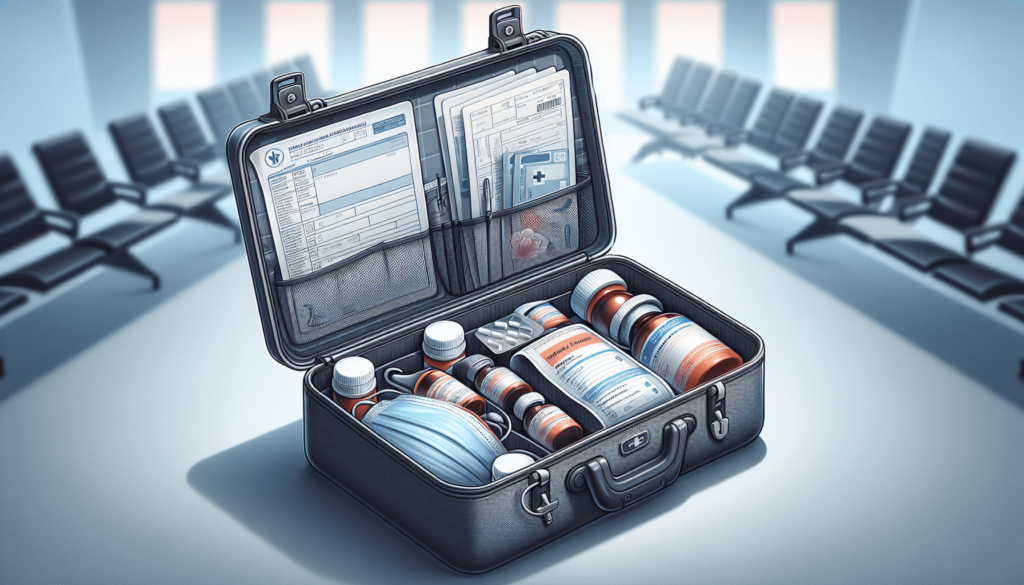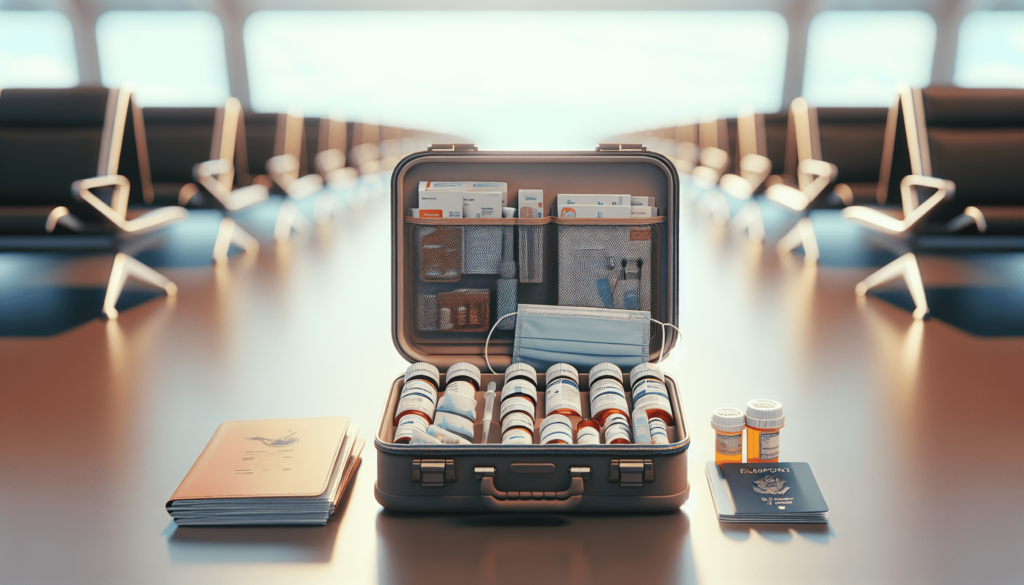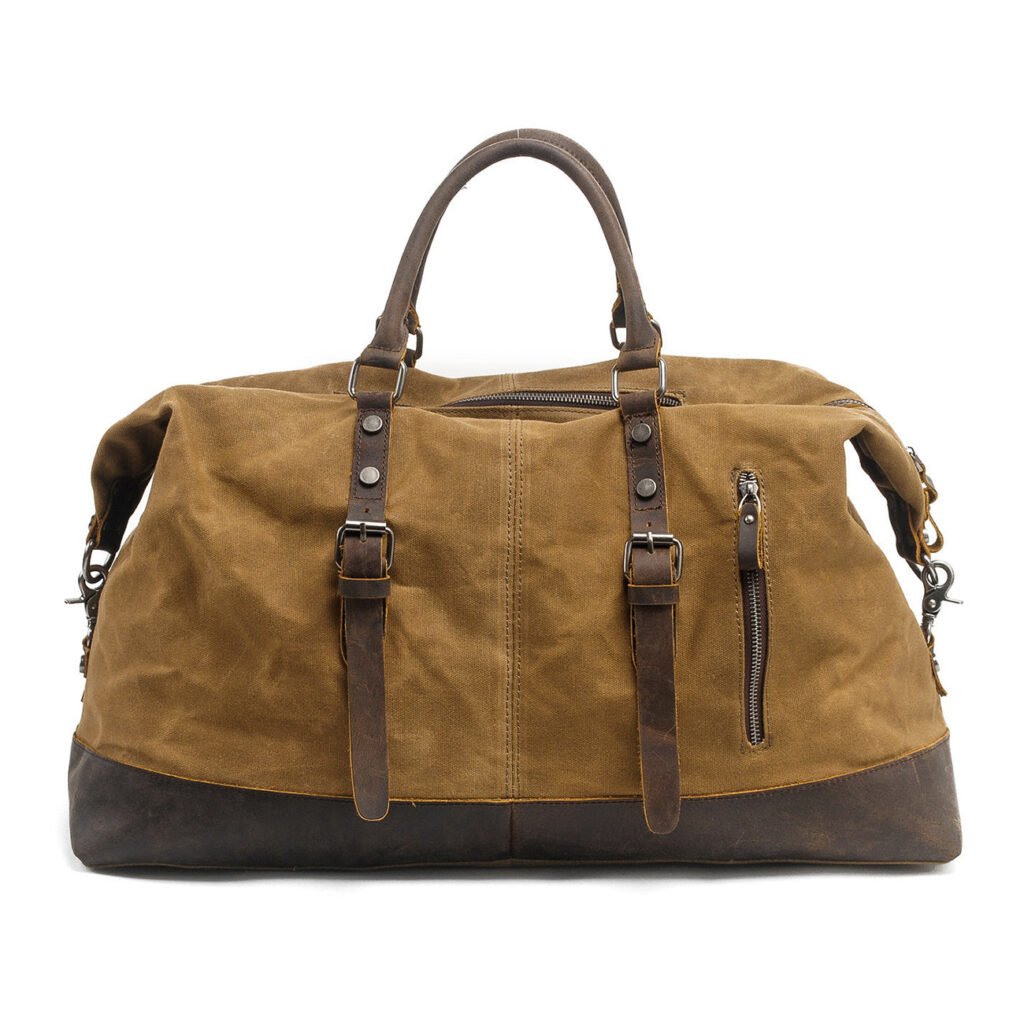Hello fellow travelers! In our latest guide, “How to Travel Safely with Medications,” we delve into the essential tips and tricks that will make managing medications a breeze while you’re on the move. We understand the importance of keeping your health in check, irrespective of your location. Whether it’s a quick business trip or a lush vacation abroad, we’ve compiled the best advice to help ensure that your medicines remain secure, effective, and within easy reach. Join us as we cover everything from packing strategies to navigating airport security smoothly with your medications in tow. So, pack up, set off, and enjoy peace of mind knowing we’ve got all your medication travel needs covered! Ever found yourselves wondering how to manage your medications while you’re off exploring new places? Traveling can be an exhilarating experience, but for those of us with health conditions that require regular medication, it can also bring a set of challenges. The key to overcoming these hurdles? Preparation.
In this comprehensive guide, we’ll walk through everything you need to know about traveling safely with medications—from legal considerations and packing tips to how to handle time zone changes. Our goal is to ensure that managing your medications on the road is a breeze, so you can focus on enjoying your adventures!

Understanding Legal Requirements
Before we set off on our journey, it’s crucial to look into the legalities of traveling with medications. Regulations can vary significantly from one country to another, and non-compliance can lead to serious issues.
Know the Law of Your Destination
Some countries have strict rules about which medications are allowed across their borders. For example, certain over-the-counter medications in the United States might be banned in other countries, or they might require a prescription. Always check the embassy’s website of your destination country to avoid any complications.
Keep Your Documentation Handy
We recommend keeping all necessary documentation readily accessible, including:
- Original prescription labels
- Letters from your healthcare provider explaining your need for the medication
- A copy of your prescription
Carrying these documents can help simplify discussions at customs and with foreign healthcare providers, should you need to visit them.
Packing Your Medications
Packing effectively is key to keeping your medications safe and effective while traveling. Here are a few strategies we’ve learned to help make this process a bit easier.
Using a Pill Organizer
If you take multiple medications, a pill organizer can be a lifesaver. They’re compact, keep your doses neatly sorted, and reduce the risk of missing a pill.
Choose the Right Bag
Always pack your medications in your carry-on luggage. Checked bags can be delayed, lost, or subjected to extreme temperatures that could damage your medication.
Carry-on Tips
When packing your carry-on, be sure that you:
- Keep medications in their original bottles to avoid questions at security.
- Pack enough medication for the duration of your trip, plus a few days extra in case of unexpected delays.
Dealing with Air Travel
Air travel, with its strict regulations and security checks, can add an extra layer of complication. Here’s how we handle it:
Security Screenings
At security checkpoints, you are allowed to bring liquid medications in quantities greater than 3.4 ounces, but you must declare them to security officers at the start of the screening checkpoint. Keep them conveniently located in your carry-on for easy access.
Airport Handling
Occasionally, security personnel might ask to open the containers to test the contents. If you’re uncomfortable with this (e.g., if it could contaminate the medication), politely ask if there are alternative methods of screening.
Managing Medications on Longer Travels
For those of us who love long travels or frequently find ourselves hopping between time zones, managing medication schedules can get tricky.
Adjusting to New Time Zones
Shifting time zones can disrupt your medication schedule, particularly if you take prescriptions at specific times. Here are some methods to adjust:
- Gradually modify your medication times a few days before departure.
- Use smartphone apps that can send reminders based on your current time zone.
Extended Stay Planning
If you’re planning a longer stay, consider these tips:
- Research local pharmacies and their medication availability.
- Check if your prescriptions can be transferred internationally, or if you can get a local prescription from a healthcare provider in the destination country.

Tips for Special Medication Types
Some medications require specific handling instructions. Here’s how we deal with them:
Temperature-sensitive Medications
Many medications need to be stored at specific temperatures. Here’s how you can manage:
- Use insulated medication bags with ice packs.
- Contact your hotel in advance to request a refrigerator in your room.
Using Medication Aids
For those requiring aids like nebulizers or insulin pumps, always carry a universal adapter and check the voltage requirements in your destination. It’s also useful to pack backup batteries or power sources.
Dealing With Emergencies
Despite our best preparations, emergencies can happen. Here’s how we prepare just in case:
Carry a Medication List
Always have a list of all the medications you are taking including dosage, generic names, and their intended purpose. This can be crucial in emergencies, especially when you’re not able to communicate effectively.
Know the Local Emergency Numbers
Familiarize yourself with the emergency contact numbers of your destination. Also, research nearby clinics and hospitals before you travel.
Travel Insurance
We cannot stress enough the importance of travel insurance. Make sure your policy covers medical expenses and note if it requires upfront payment or if it can settle the bill directly with providers.
Final Thoughts
Traveling with medication doesn’t have to be a hassle. With the right preparation, we can manage our health and enjoy our travels to the fullest.
Remember, every trip and traveler’s needs may vary, so consider your personal health requirements and adjust your plans accordingly. Safe travels and don’t forget to enjoy every moment of your adventure!


